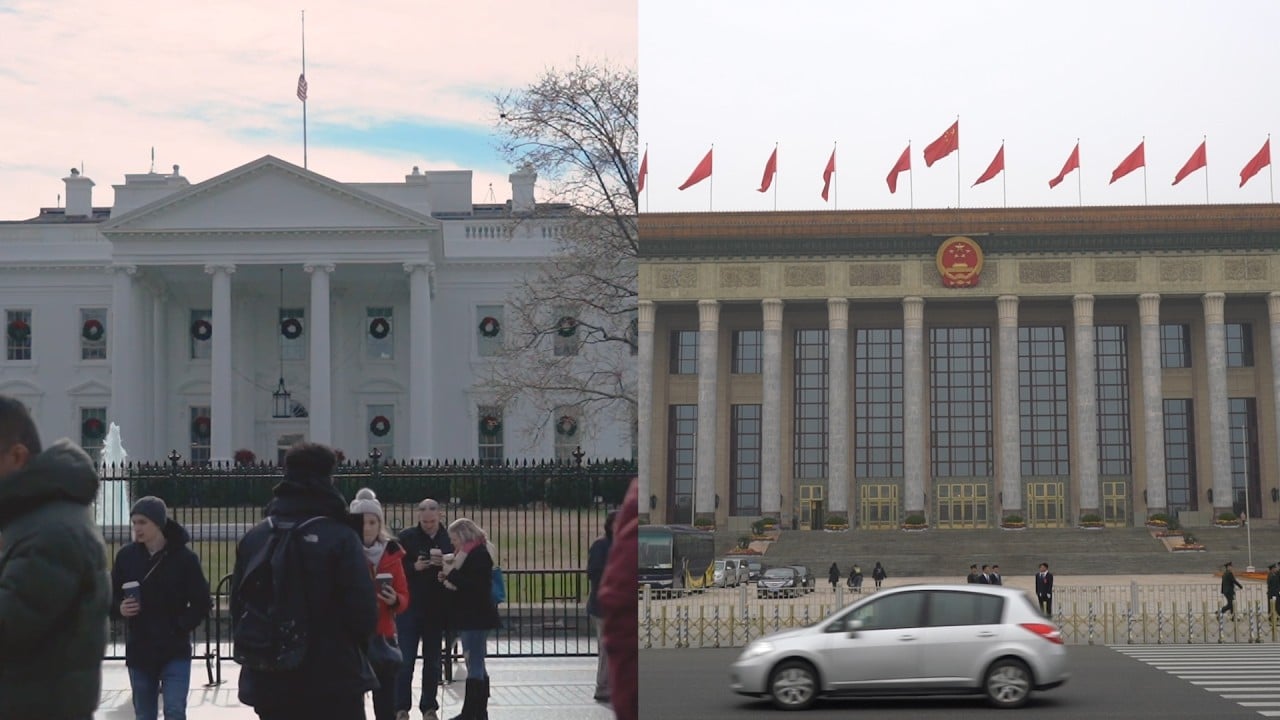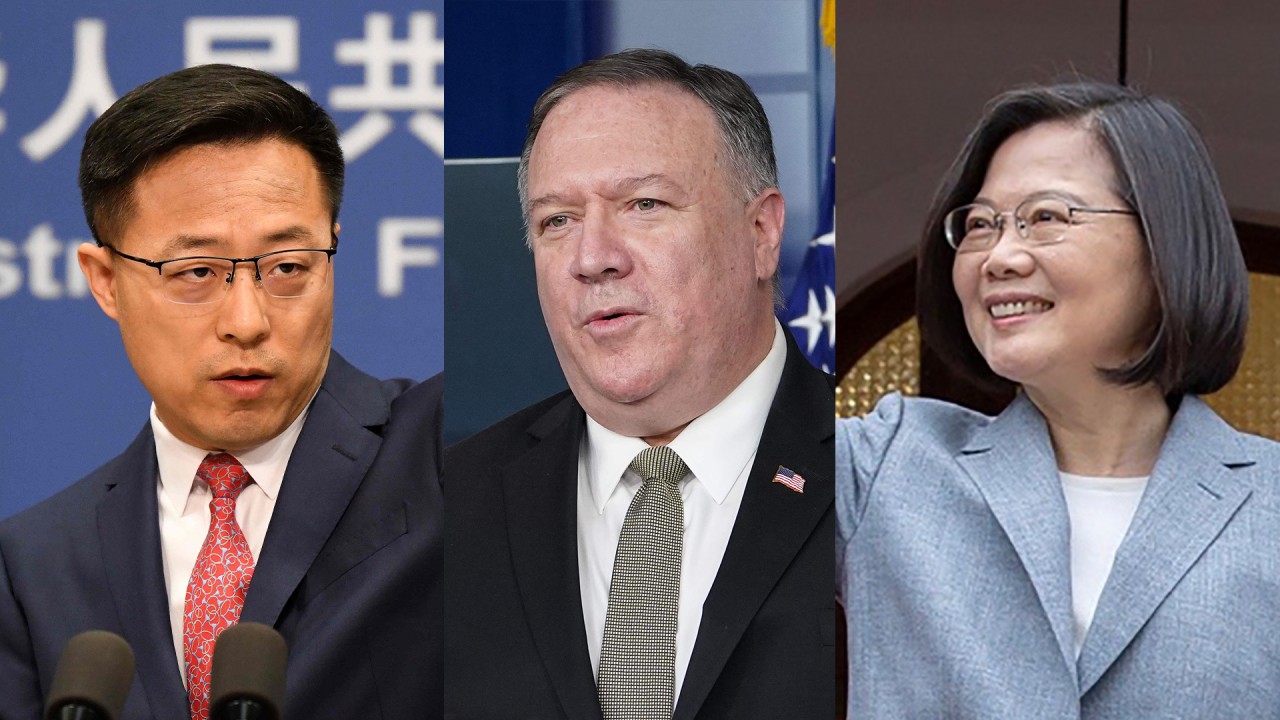
‘Cold War echoes’: United States accuses China of face-off on all fronts
- White House policy paper defines US president’s ever-hostile stand on Beijing as Trump makes a bid for re-election
- Era of playing down ideological differences to avoid derailing relations is over, analyst says
Apart from China’s economic practices, military built-up, increasingly assertive diplomacy and expansive territorial claims, the document examines Beijing’s high-profile ideological campaigns to promote its authoritarian system and challenge Western values in recent months.
According to the report, the Trump administration sees “no value” in engaging with Beijing for symbolism and pageantry. “When quiet diplomacy proves futile, the United States will increase public pressure [on China],” it said.

02:06
Coronavirus pandemic creates ‘new Cold War’ as US-China relations sink to lowest point in decades
The document was released just before the opening of the National People’s Congress – China’s legislature – on Friday.
Zhu Feng, a US relations specialist at Nanjing University, said the document was “unprecedented” and marked the further deterioration of bilateral relations, which many believed were at their worst in four decades.
“In the past, both sides chose to play down their ideological differences to avoid derailing bilateral ties. But apparently that era is gone,” he said. “Highlighting ideological factors in China-US relations is reminiscent of the Cold War between the US and the former Soviet Union, in which ideological wrangling played a big part.”
All eyes on NPC as China set to reveal historic virus recovery stimulus
The White House document was clearly another move by the Trump administration to deflect the blame for mishandling of the coronavirus crisis, which could cost the US leader re-election, according to Zhu.
Citing an unnamed senior US official, Associated Press also said the document did not signal a shift in US policy towards China, but expanded on Trump’s get-tough rhetoric that he hoped would resonate with voters angry about China’s handling of the disease outbreak, which has left tens of millions of Americans out of work.
Just hours before the release of the document, Trump lashed out at China on Twitter, accusing Beijing of waging a “massive disinformation campaign” to help his presumptive opponent Joe Biden win the 2020 presidential election. “Its disinformation and propaganda attack on the United States and Europe is a disgrace. It all comes from the top,” he said, without naming Xi.
The document also took aim at the Communist Party for stalling and reversing economic and political reforms, extending the party’s control over the government and public life and particularly the removal of presidential term limits.
“Given the strategic choices China’s leadership is making, the United States now acknowledges and accepts the relationship with [China] as the [party] has always framed it internally: one of great power competition,” the document said.
It cited a speech by Xi in 2013 as evidence of how Beijing had long been engaged in ideological competition with the US, with the help of economic leverage and nationalist, anti-Western propaganda.
No time for China to be complacent about Covid-19, law professor warns
In that speech seven years ago, Xi said “capitalism is bound to die out and socialism is bound to win”.
Citing the mass internment of more than 1 million Uygurs and members of other largely Muslim ethnic minority groups in Xinjiang, it accused China of trying to build “a police state” and using advanced surveillance technologies to carry out religious persecution and human rights violations around the country.
It also said the US had “significant interests” in preserving a high degree of autonomy, rule of law and democratic freedoms in Hong Kong, home to 85,000 American citizens and more than 1,300 US businesses.

02:47
China warns US of ‘strong response’ regarding Taiwan, saying island’s independence is 'dead end'
Shi Yinhong, a professor of international relations at Beijing’s Renmin University, said the document had yet again underlined the widening mistrust and misperception between the two countries.
However, despite the harsh words, the document failed to give fresh insights on how the Trump administration would counter China’s perceived overreach and challenges, he said.
“The broadside against China is another worrying sign that US-China tensions are exacerbating ahead of the US elections. It is safe to say that a new Cold War is beginning to emerge,” he said.

